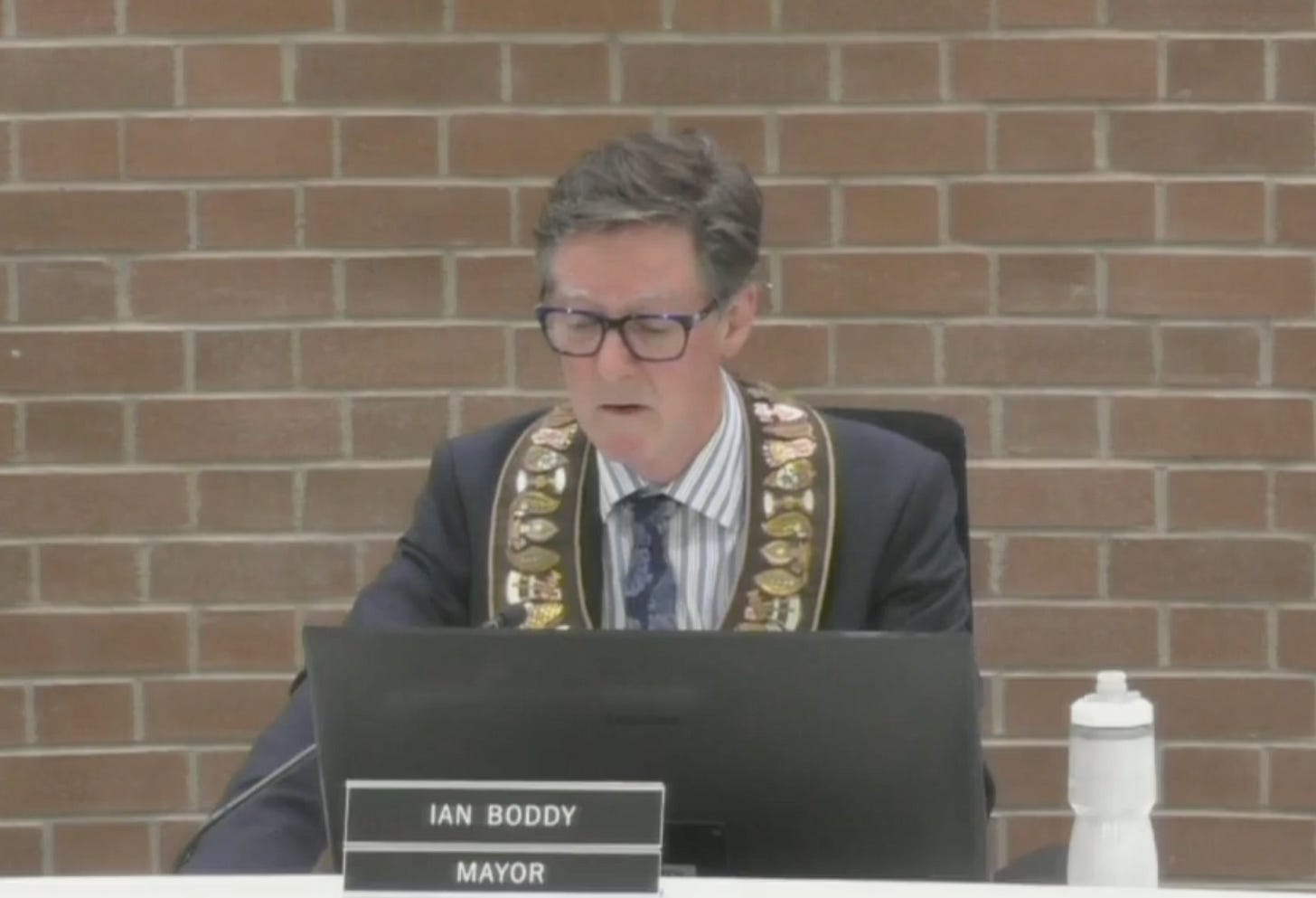Boddy's First Strong Mayor Move: Returning the Powers to Council & Staff
Owen Sound Mayor Ian Boddy joins other Ontario mayors in ironically using new strong mayor powers to give them up—formally returning authority to council and staff.
Owen Sound Mayor Ian Boddy has signed three “Mayoral Decisions” under Ontario’s strong mayor legislation, formally delegating key powers back to the city council and City Manager.
The move, which appears on the May 12 council agenda, effectively rejects the expanded authority the province conferred on Boddy through legislation that took effect May 1.
In using strong mayor powers to return authority to others, Boddy follows the same path as other local leaders, including Blue Mountains Mayor Andrea Matrosovs.
In a statement issued earlier this week, Matrosovs said she had to use the new powers to decline them, preserving her community’s collaborative approach to governance.
Owen Sound Council had already voted unanimously on April 28 to request that the province remove the city from the list of designated “strong mayor” municipalities.
While that vote expressed a clear position, the change in legislation still took effect, making formal mayoral action necessary to maintain the city’s existing governance model.
The three decisions signed by Boddy delegate the following powers:
The first returns council’s authority over the Chief Administrative Officer (CAO), a role currently held by City Manager Tim Simmonds. Under the strong mayor framework, the mayor holds unilateral authority over hiring and managing the CAO. Boddy’s decision formally delegates that authority back to council under section 284.5 of the Municipal Act.
The second delegates responsibility for determining the City’s organizational structure, such as department design and staffing, to the City Manager, under section 284.6. While some municipalities may choose to keep that power with the mayor or council, Owen Sound is continuing with the established CAO-led model.
The third decision returns to council the power to create or dissolve committees made up solely of council members, appoint their chairs and vice-chairs, and assign functions. That authority, granted to the mayor under section 284.8, has now been formally delegated back to council as of May 1.
Council is expected to receive the mayoral decisions at its May 12 meeting. No vote is required, but the decisions take effect unless formally modified or revoked.
This series of decisions reflects a clear local stance against the new powers, which were extended to 168 additional municipalities this spring.
Under Ontario’s strong mayor legislation, mayors have the ability to unilaterally propose and veto budgets, override certain council decisions tied to provincial priorities, and hire or fire key municipal staff.
Supporters of the legislation say it helps streamline decision-making around housing and infrastructure, core areas the province has identified as priorities. But opponents, including many municipal councils and some mayors, argue the framework undermines democratic decision-making and consolidates too much authority in one office.
Owen Sound Council’s rejection of the powers followed a protracted process. Council members requested legal advice, a staff report, and a custom presentation from municipal governance lawyer John Mascarin before voting.
While some communities took swift and early positions on the legislation, Owen Sound’s decision came only days before the new rules took effect.
Boddy has not yet issued a public statement accompanying the mayoral decisions, and neither Boddy nor City Manager Tim Simmonds immediately responded to our inquiries.
However, the mayor’s actions bring Owen Sound’s legal structure in line with the position Council has taken. The city will continue to operate under the same division of responsibilities that existed before May 1, with oversight and accountability remaining shared among council and staff.
In doing so, Owen Sound joins a growing list of Ontario municipalities that have said “No, thanks” to the province and formally declined the strong mayor powers they’ve been given.





